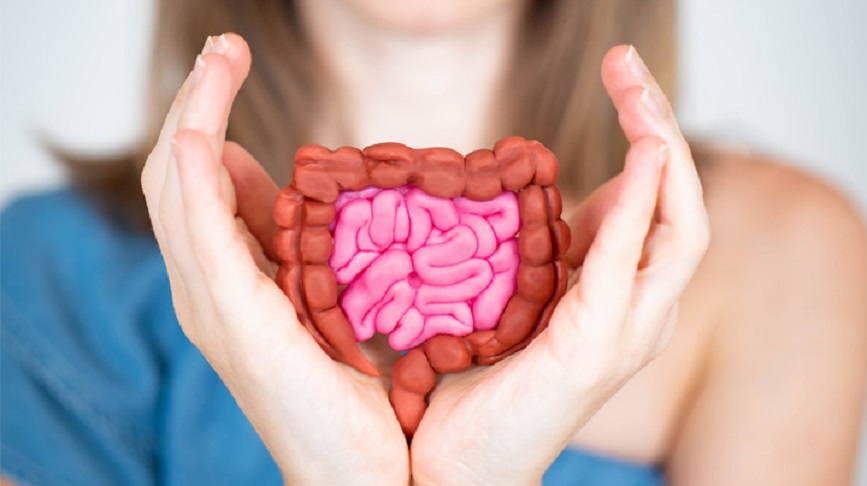
Our gut is often called our "second brain" for good reason. It's not just responsible for digestion; it plays a crucial role in our overall health, including our mental wellbeing. This connection, known as the gut-brain axis, is at the forefront of groundbreaking research, revealing how our gut health can influence our mood, cognition, and even our susceptibility to mental health conditions. This article explores the fascinating link between gut health and mental wellbeing, providing insights into how nurturing your gut can lead to a happier, healthier mind.

The Connection Between Gut Health and Mental Wellbeing
- The Science Behind the Gut-Brain Axis
The gut-brain axis is a complex communication network that links your enteric nervous system (ENS) to your central nervous system (CNS). This bidirectional pathway allows for the constant exchange of chemical signals, which influences not just your physical health, but your emotions and thoughts as well. Recent studies demonstrate how alterations in gut microbiota can affect this communication, potentially leading to emotional and cognitive dysfunctions. - Probiotics and Their Role in Mental Health
Probiotics, the beneficial bacteria residing in our gut, play a pivotal role in maintaining this crucial balance. By supporting a healthy gut environment, probiotics can positively impact our mental health, offering a promising approach to treating conditions like depression and anxiety.
Unpacking the Evidence: How Gut Health Influences Mood and Cognition
- Case Studies and Research Findings
A growing body of research underscores the link between gut health and mental health. For instance, certain gut bacteria are found to produce neurotransmitters like serotonin, which is pivotal in regulating mood. Moreover, studies have found that individuals with healthy gut microbiomes tend to have better mental health outcomes compared to those with dysbiosis (an imbalance in gut bacteria). - Personal Testimonies: Real-life Impacts
Real-life accounts further validate the science, with many individuals reporting significant improvements in mood and mental clarity after adopting gut-friendly diets and lifestyles. These stories not only highlight the personal impact of gut health on mental wellbeing but also inspire others to consider their gut health as part of their mental health care plan.
Practical Steps to Enhance Gut Health for Better Mental Wellbeing
- Dietary Recommendations for a Healthy Gut
A balanced diet rich in fiber, fermented foods, and plant-based nutrients is key to supporting a healthy gut microbiome. Foods like yogurt, kefir, and sauerkraut, along with prebiotic-rich foods such as garlic, onions, and bananas, can promote the growth of beneficial gut bacteria. - Lifestyle Changes to Support Gut-Mental Health
Beyond diet, other lifestyle factors including regular exercise, adequate sleep, and stress management can positively influence gut health. These practices not only support a healthy gut but also enhance overall mental wellbeing.
Common Misconceptions and Truths About Gut Health and Mental Health

- Debunking Myths Around Probiotics and Mental Health
While probiotics are beneficial, they are not a cure-all. It's important to approach probiotic supplementation with a balanced perspective, recognizing that a holistic approach to gut health is necessary for mental wellbeing. - Understanding the Limits of Gut Health Impact
While the gut-brain connection is powerful, it's one piece of the complex puzzle of mental health. Acknowledging the multifaceted nature of mental health challenges is crucial in developing effective treatment plans.
The Future of Mental Health: Integrating Gut Health into Treatment Plans
- Innovations in Therapy: The Role of Nutrition
Nutrition is becoming an integral part of mental health treatment, with personalized diet plans tailored to improve gut health and, by extension, mental wellbeing. - The Importance of Personalized Health Plans
Personalized health plans that consider an individual's unique gut microbiome can offer targeted, effective strategies for improving mental health, highlighting the need for personalized care in mental health treatment.
Conclusion: Embracing the Gut-Mental Health Connection for a Brighter Tomorrow
Understanding and nurturing the connection between gut health and mental wellbeing opens new pathways for treating and managing mental health conditions. By focusing on our gut health, we can unlock a powerful tool for enhancing our mental wellbeing, paving the way for a holistic approach to health that integrates body and mind. As we continue to explore this connection, the future of mental health treatment looks promising, with gut health playing a central role in achieving a balanced, healthy life.

